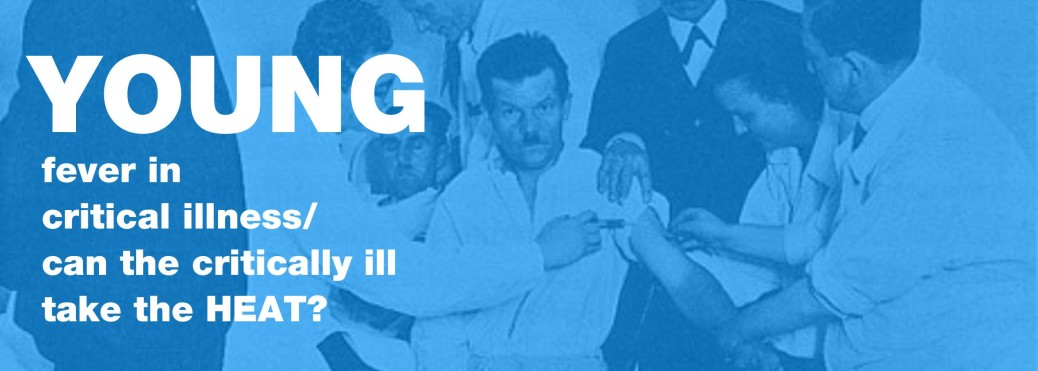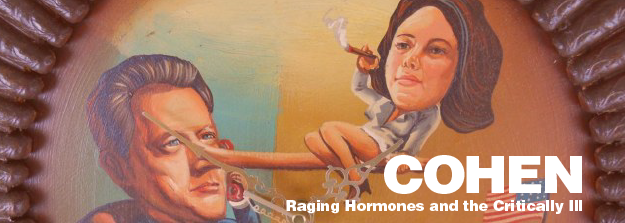Fever in Critical Illness: Can the Critically Ill Take the HEAT?
Summary by: Paul Young
The febrile response to infection occurs in most animals and is regulated by a common biochemical mechanism involving prostaglandin E2. This common mechanism suggests that the response may have evolved in a common ancestor more than 350 million years ago. As the febrile response comes at a significant metabolic cost, its persistence across a broad range of species provides circumstantial evidence that the response has some evolutionary advantage. Furthermore, it logically follows that the components of the immune system would have evolved to function optimally in the physiological febrile range.
There are a number of historical examples of dramatic responses to treatment with therapeutic hyperthermia in some infectious diseases, including neurosyphilis and malaria. The relevance of these historical examples to the modern era is unclear. Furthermore, arguments based on the evolutionary importance of the febrile response do not necessarily apply to critically ill patients who are, by definition, supported beyond the limits of normal physiological homeostasis. Humans are not adapted to critical illness. In the absence of modern medicine and Intensive Care, most critically ill patients with fever and infection would presumably die. Among critically ill patients, it seems likely that there is a balance to be struck between the potential benefits of reducing metabolic rate that come with fever control and the potential risks of a deleterious effect on host defence mechanisms. Where this balance lies is very unclear as there are very few interventional studies of fever management in critically patients.
Remarkably, although paracetamol is very widely used in ICU patients with fever and infection, only one RCT, the HEAT trial, has investigated the safety and efficacy of administering paracetamol to critically ill patients with fever and infection. This talk gives the background to the HEAT trial which has now been published in the New England Journal of Medicine.
More
- The Bottom line: HEAT trial reviewed
- NEJM article: Acetaminophen for Fever in Critically Ill Patients with Suspected Infection
- NEJM supplement: Supplementary reading
- Paracetamol improves recovery in critically ill patients. Radio interview with Paul Young
- Paracetamol therapy and outcome of critically ill patients: a multicenter retrospective observational study









